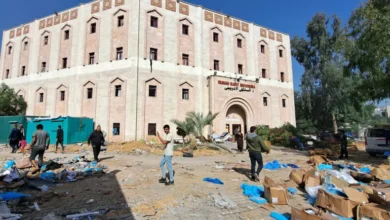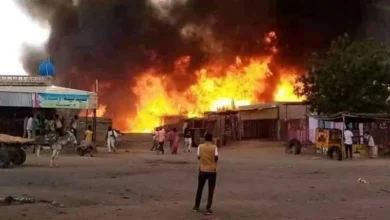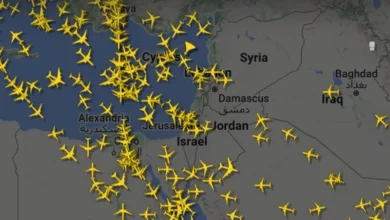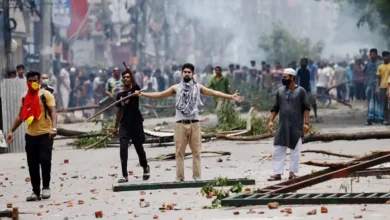Turkey’s Erdogan faces crescendo of criticism over quake response
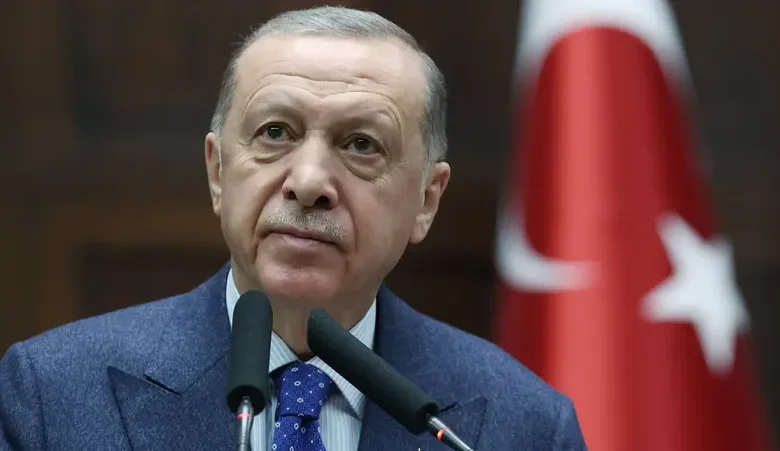
Criticism of Turkey’s earthquake response mounted on Wednesday, with the political opposition and people in the disaster zone accusing the government of a tardy and inadequate relief effort.
The anger grew louder as President Recep Tayyip Erdogan, facing a tight election in three months’ time, visited the afflicted area for the first time and acknowledged some problems with the initial response.
Monday’s quakes have killed more than 11,000 people across southern Turkey and northwest Syria. They cracked infrastructure and flattened thousands of buildings, causing hardship for millions and leaving many homeless in bitterly cold weather.
“Where is the state? Where have they been for two days? We are begging them. Let us do it, we can get them out,” said Sabiha Alinak, near a snow covered collapsed building where her young relatives were trapped in the city of Malatya.
From the outset, Turks have complained of a lack of equipment and support as they waited helplessly next to rubble, lacking the necessary expertise or tools to rescue those trapped – sometimes even as they could hear cries for help.
Kemal Kilicdaroglu, leader of the main opposition party, had earlier in the week said the disaster was a time for unity, not criticism. But on Wednesday he accused the government of failing to cooperate with local authorities and weakening non-governmental organizations that could help.
“I refuse to look at what is happening as above politics and align with the ruling party. This collapse is exactly the result of systematic profiteering politics,” he said. “If there is anyone responsible for this process, it is Erdogan. It is this ruling party that has not prepared the country for an earthquake for 20 years.”
Rescue workers have struggled to reach some of the worst-hit areas, held back by destroyed roads, poor weather and lack of resources and heavy equipment, while some areas are without fuel or electricity.
Military response
Nasuh Mahruki, founder of a search and rescue group active in response to the 1999 earthquake that killed 17,000, said the army did not act soon enough because Erdogan’s government annulled a protocol enabling it to respond without instruction.
“When this was cancelled (their) duties and responsibilities in combating disasters were taken away,” he told Reuters.
“In the first seconds (after the 1999 quake), the Turkish Armed Forces started to work and were on the scene with the people within hours,” he said, contrasting this with the current situation where the military had to wait for instructions.
“Now it seems the responsibility is with AFAD (Disaster and Emergency Management Authority), but it is not prepared for such a colossal problem,” Mahruki added.
Speaking in Kahramanmaras, near the epicenter of the earthquake, Erdogan said: “We had some problems in airports and roads but we are better today.”
“I would like to ask you not to give a chance to provocateurs, other than the statements especially from AFAD… Because today is the time for unity,” he said.
He did not appear to have had a direct confrontation with any local people.
A government official, who requested anonymity, said the efforts were hampered by damaged roads, bad weather and being unable to use airports due to damage.
“It seems that we should have been more prepared,” the person said.
In the southern city of Antakya, one of the hardest hit, Melek, 64, said she had not seen rescue teams as of late Tuesday. “We haven’t seen any food distribution here unlike previous disasters in our country. We survived the earthquake, but we will die here due to hunger or cold.”
Selim Temurci, spokesman for the opposition Future Party, said AFAD’s efforts were insufficient due to personnel shortages and the vast expanse of destruction.
“They did not have the capacity to conduct search and rescue at all the buildings at once but they only got to certain places in 30 hours,” he said, adding those rescued still lacked food and water.

